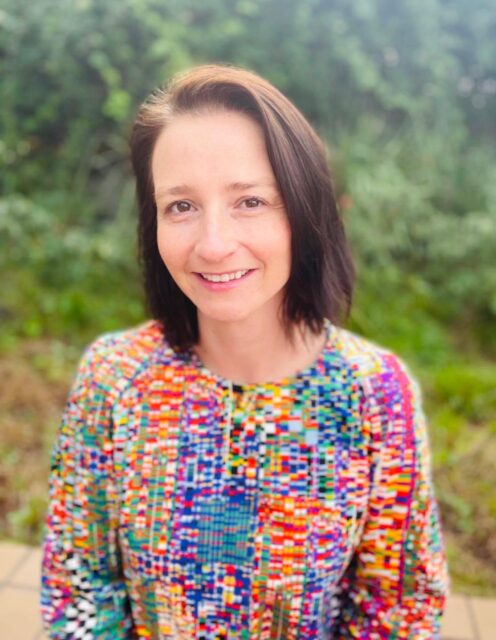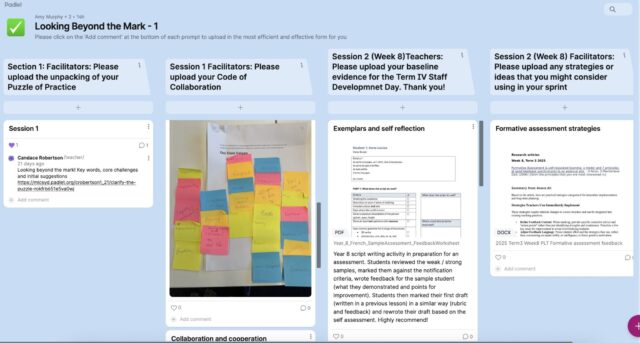Delving into the research during our PLT Workshop
 This week marked our third Professional Learning Team (PLT) session, where teams continued to engage deeply with their inquiry focus. The session was designed to build collective efficacy by strengthening our understanding of the research underpinning each team’s puzzle of practice, and by exploring how baseline evidence can be purposefully used to inform, guide, and evaluate professional inquiry.
This week marked our third Professional Learning Team (PLT) session, where teams continued to engage deeply with their inquiry focus. The session was designed to build collective efficacy by strengthening our understanding of the research underpinning each team’s puzzle of practice, and by exploring how baseline evidence can be purposefully used to inform, guide, and evaluate professional inquiry.
Learning Intention
To deepen our understanding of the research underpinning our puzzle of practice and to explore how baseline evidence can be purposefully used to inform, guide, and evaluate our professional inquiry.
Success Criteria
-
I can retrieve and reflect on my team’s unpacking of the puzzle of practice using visual or written strategies.
-
I can engage with educational research using a structured note-taking routine.
-
I can identify and document baseline evidence that supports our inquiry focus.
-
I can contribute to team reflection by sharing insights, challenges and possible strategies for implementation.
Session Highlights
We began with a moment of joy, a two-minute reflective prompt designed to break the ice and centre our minds for learning. Teachers were invited to consider a number of ideas connected to teaching and learning. This small but intentional practice aligns with research on teacher wellbeing and the role of positive emotion in cognitive engagement (Fredrickson, 2001).
Our Do Now activity focused on retrieval practice, a high-impact strategy that supports long-term retention and transfer of learning (Agarwal & Bain, 2019). Teachers revisited key terminology and metalanguage from Week 5, reinforcing their understanding of their team’s puzzle of practice.
The core of the session centred on engaging with educational research. Using a guided note-taking scaffold, teachers read purposefully and actively, categorising their insights into:
-
Tried and tested strategies
-
Exciting and new strategies
-
Ideas worth sharing with another PLT
-
Strategies that raised questions or concerns
This structured approach supported metacognition and ensured that reading was not passive, but instead a springboard for professional dialogue and innovation.
We also introduced the concept of baseline evidence, drawing on the work of Dr. Simon Breakspear. A modelled example illustrated how baseline data can serve as a meaningful starting point for a learning sprint, highlighting both existing practices and missed opportunities. This aligns with Breakspear’s emphasis on using evidence to drive agile, iterative improvement cycles in schools.
Teachers reflected on how baseline evidence can:
-
Illuminate current practice
-
Identify gaps or inconsistencies
-
Provide a benchmark for measuring impact
-
Support targeted, responsive teaching strategies
Throughout the session, teams engaged in rich discussion, sharing insights, challenges and emerging strategies. The collaborative energy in the room reflected a strong culture of professional trust and a shared commitment to improving student learning through inquiry and evidence.
Our workshop sessions are designed in Canvas to demonstrate best practice in e-Learning and each PLT journey is being captured via Padlet.
– Amy Murphy
Director of Professional Practice




